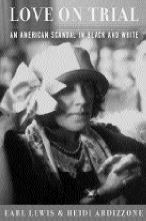STRINGTOWN MAGAZINE: ISSUE 5 ($5, StringTown Press) published annually; for subscription information, write: 2309 W. 12th Ave., Spokane, WA 99224
SOMETIMES LESS is more. A little magazine of stories and poems can be exactly what we want, and not just because years of sound bites have left us with the attention span of a gnat. The modest paperback of pamphlet length, so slim it’s stapled at the spine, so pliant it won’t stand at attention on the shelves—a small stack of them sits on a bookstore table, where the top copy may acquire a patina in the hands of browsing customers. But in shaggy shape or spiffy, the best of the littlest literary magazines do for us what full-length books can’t.
A fat volume of poems is a feast, but a little magazine of short pieces is a gulp of wine on an empty stomach—the little spin you can come down from simply by turning to the bread or beans of the daily round. A hefty fiction collection may feel like heart surgery combined with luxuriously slow healing, but a little magazine is a four-hour flu with flashes of convalescent clarity. And if novels can feel like ocean voyages, little magazines—like StringTown—are the brief passage from the river’s mouth across the perilous bar and out to sea. This particular Pacific Northwest publication takes its name, in fact, from a place near the outfall of the Columbia River where fishermen once fashioned their nets. StringTown‘s fifth issue has just been released, with 60 pages of poems, short stories, and illustrations.
When a book can be devoured in one brief sitting, the mood created by its first picture and words lingers throughout. StringTown‘s eye-catching cover, a painting by Roxy Hills, depicts two radiant, athletic young women in red swimsuits drying off after a shower; then Kathleen Hunt, in the opening poem “One Morning,” recalls learning to skate, “lurching and gliding . . . /cold and glittering and astray/all through the dark winter.” As you page through StringTown, you trace an uncertain route between bright grace and the chilly, clumsy dark.
In Jan Priddy’s short short story, “What You Wish For,” several thirtysomethings chase romance through parallel universes that sporadically intersect. Marie loses Bill, who meets Debbie, who dreams of Carl, who left Jennifer, who jogs past Sam, who wants Marie now that she’s alone. The plot made me incredulous and expectant—how will this longing take the right wrong turn?—as Priddy’s bemused empathy held six hopeful imaginations, those of each character, in balance. Jeremy Voigt’s “Estuary” is an equally deft balancing act that matches intensities of hunger and yearning with the energies of the surrounding world and the words he uses to describe it: the “chuppah of cottonwoods,” the “affiance” of waxwings.
A few StringTown authors seem to think earnest pathos is literature. In Matt Briggs’s “False Teeth,” one example among several, a childish mother who wants to go honeymooning with her boyfriend dumps her daughter at Grandma’s house, where the little girl’s brave loneliness reduces her to chatting with the old lady’s dentures. In this sincere narrative of unrelenting woe, there’s no sign of a storytelling consciousness apart from the characters in the splintered family—no language to suggest anything about the mind of the writer who would choose to tell this tale. The story might be important to the characters, but is it important to us?
There’s more going on in poems such as David Thornbrugh’s “Metro Mirage,” where a speaker both in the middle of things and outside them gives a vivid sense of place to the prevailing atmosphere of depletion, spiritual dryness, and aimless anxiety. His allusions to public events and his arresting images—like the woman riding in an overheated city bus who “wishes she . . . could slide out of her skin/like a leg pulled from panty hose”—suggest multiple levels of awareness at work. The voice and structure of Judith Skillman’s “Witches Butter,” too, imply an evenly hovering attention above the poem’s “dark fungus/that absorbs light” like a profound clinical depression, a condition the speaker contemplates with no need to make somebody feel her pain. She forgoes “the perverse pleasures/of victimhood/in all its disguises.” No unclaimed grievances determine artistic choices in these pages.
Artists are at work, too, in Carol Lichtenberg’s lovely “Winter Storm Warnings,” where the speaker turns to look back at her footprints on the “vast, moot elegance” of snow; in the unpredictable sexual fantasy of Jason Olsen’s “Ventriloquist”; in James Bertolino’s “Bloodhat,” where a captain, charladies, and a confessional priest surround a “dying diva” in an absurd narrative the speaker is dreaming up line by line.
There’s more good stuff in this short collection than can be considered here, though a shorter collection would have been even better—perhaps the editor, Polly Buckingham, was a bit too inclusive. Sometimes more is less. Or a different balance is needed: less matter, with more art.










